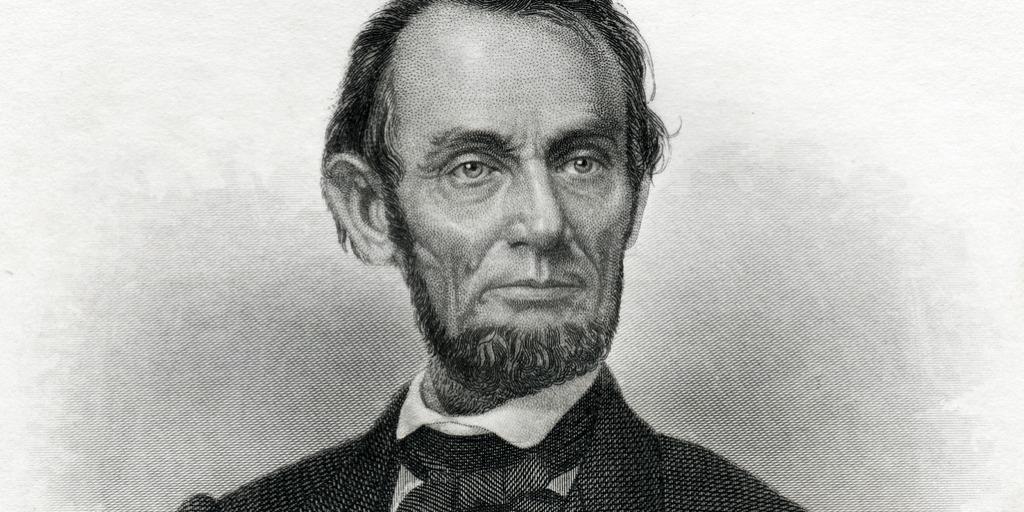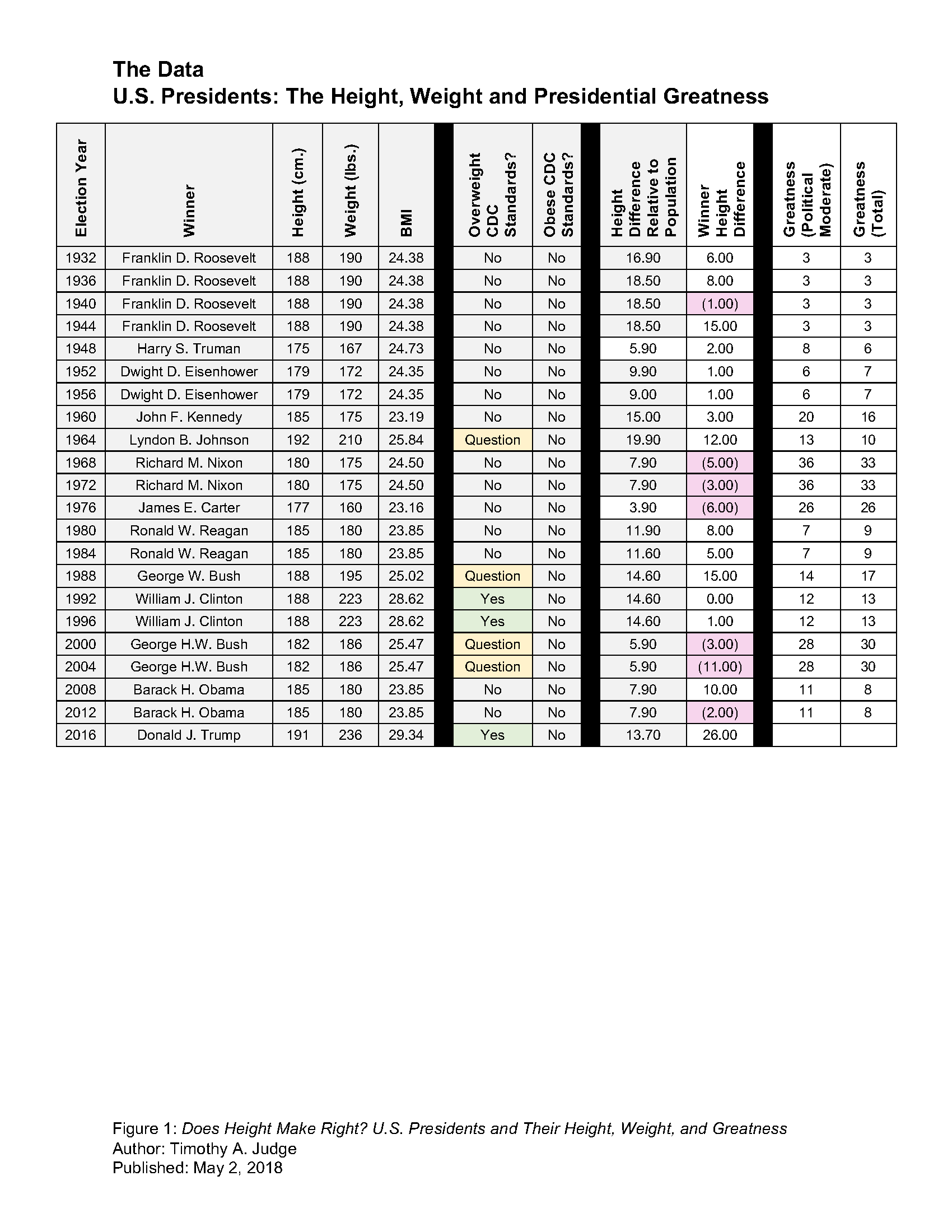Does Height Make Right? U.S. Presidents and Their Height, Weight and Greatness


One might argue that the very foundations of democracy rest on our ability to choose wisely in picking our leaders. No decision is more consequential than the decision on our president. Yet do we actually make wise choices? Do we actually consider the “right” set of factors when we elect presidents?
A fuller post on this issue is coming; for now I will simply focus on three factors: height, weight and year elected. I use these to predict two outcomes: (1) who wins presidential elections and (2) how these factors predict historian ratings of presidential greatness.
Who Wins Elections?
There is a slight tendency for winners of presidential elections to be taller than their opponents, though the difference is quite small (1.24 centimeters or 0.49 inches) and not significant. It does appear, however, as if the height advantage, slight though it may be, is getting more pronounced over time. If one considers presidential elections 1988 – 2012, winners average 1.07 centimeters (0.42 inches) shorter than their opponents. In the past 100 years (1916 – 2018, actually), however, winners average 3.81 centimeters (1.50 inches) taller than their opponents. More startling, still, it has been 118 years since we elected a president who was shorter than the average American male at the time and, since then, the average U.S. president has been 11.23 centimeter (4.42 inches) taller than the average American male, which is a pretty noticeable difference.
In terms of weight, the results are less clear. We have routinely elected U.S. presidents who are overweight, including Presidents Clinton and Trump. It has been more than a century, however, since we have had an obese president.
Overall, though the results vary a bit by the type of study one performs, it appears that height and weight do matter in how we pick presidents.
One may or may not find these results surprising. What is considerably more unexpected is how these results track to presidential greatness.
Predicting Presidential Greatness
Next, I analyzed whether these characteristics — a president’s height and weight — predicted presidential greatness. For ratings of presidential greatness, I used Brandon Rottinghaus and Justin Vaughn’s recent study, “Official Results of the 2018 Presidents and Executive Politics Presidential Greatness Survey.” Because their investigations show that greatness ratings are biased by one’s own political ideology, I used the greatness ratings provided by self-described political moderates.
In regressing greatness ratings on height and weight, I controlled for year the presidents were elected and, to examine whether the height premium has changed over time, I also examined the interaction between height and year elected. (See Figure 1 below for my full analysis.)
The results suggest that there was a moderately strong relationship between height and presidential greatness.
Not surprisingly, the presidents with the highest predicted scores — Washington, Jefferson, Jackson, Lincoln and Franklin Roosevelt – also have very high greatness scores. The one exception – Lyndon Johnson — has a relatively high greatness score. While these are presidents at the high end of both height and greatness, it’s important to keep in mind that the analysis is based on all presidents.
Note that it is difficult to argue that presidential greatness should depend on height, weight (body mass index) or, more arguably, how long ago the leader was elected. These are the only factors (along with the interaction between year elected and height) that went into the predicted values. We find it difficult to identify leader behaviors that, independently assessed, correlate this highly with leader effectiveness.
And what about our current president? Most historians – and public opinion – do not give President Trump particularly high marks after 15 months in office. Yet his predicted greatness score (score=33.53) is one of the highest of all presidents – surpassed only by George Washington (score=34.37), Thomas Jefferson (score=34.70), Lyndon Baines Johnson (score=35.77) and Abraham Lincoln (score=37.51).
Poppycock, you say? Look, I am only the messenger here: The eminent philosopher David Hume cautioned us more than 250 years ago to avoid the ought – is problem: He noted that our desire for how things should be colors our evaluation of how things really are. Let’s not mix up what we think is the case with what we think ought to be the case. I do not imagine many of us arguing in favor of height as a factor we should consider in electing or rating our political leaders. But the results clearly suggest it is a significant factor, like it or not.
If you allow me to editorialize, my point here is this: If we find fault with our leaders, let us not forget that we elected them. And my opinion is that the way in which we do that – for Republicans and for Democrats – leaves much to be desired. On that front, let me close with a question: As a citizenry, how good of a job do we do identifying the best and the brightest leaders to lead us – and what can we do to help us to choose leaders on the basis of the right (leadership qualities and behaviors) vs. wrong (superficialities, biases and other things unrelated to objective performance on the job) qualities? This is not a right or left issue.
In a coming post, I’ll expand on these points further and look at more “superficial” characteristics.
Figure 1: The Data, U.S. Presidents: The Height, Weight and Presidential Greatness

